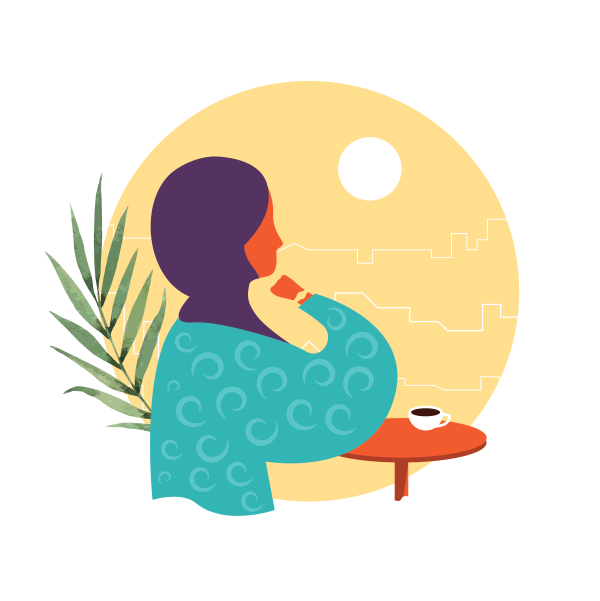
Thank you! You should receive an email asking you to confirm your subscription.
Oops! Something went wrong while submitting the form.
April 5, 2021

Everyday, womn* human rights defenders in Africa put themselves at risk to challenge endemic and emerging human rights abuses in different countries, speaking out against injustices, abuse and discrimination.
Womn and gender diverse groups are disproportionately affected by inequalities and human rights violations. Gendered human rights crises are all too common, and especially dire for risk groups like womn human rights defenders, LBT womn, migrants and refugees, indigenous womn and ethnic minorities, womn and girls living with HIV and disabilities or those living through humanitarian crises.
Urgent Action Fund - Africa (UAF - Africa) is a feminist, Pan-African rapid response fund supporting and resourcing grassroots feminists and womn human rights defenders to transform this reality. UAF-Africa leverages a rapid response grantmaking model to reach the most at risk human rights defenders and organizations quickly with appropriate funding to support their work, safety, and reduce risks that they face. UAF - Africa puts solidarity, collective care, and empathy at the center of their funding process. As a feminist fund, active listening, long-term collaboration and downward accountability are crucial to their partnerships.
Hiwot Tedla, Monitoring, Evaluation, Accountability & Learning Senior Programme Officer shares diverse ways of how the fund has leveraged ImpactMapper’s survey tool to support their approach with their grantees.
Active listening to inform the Fund's COVID-19 funding response
The impact of the COVID-19 pandemic on Africa has created an unprecedented and uncertain situation for womn's rights defenders in Africas. Overnight, many of these organizations were turned into emergency frontline respondents, while facing a rapidly deteriorating landscape for civil rights.
“We did not want to provide support to the grantee partners before knowing what the context is & what they are grappling with” - Hiwot Tedla, Monitoring, Evaluation, Accountability & Learning Senior Programme Officer.
To understand the landscape and funding needs of their partners given the second wave of the pandemic and the uncertainty that it created, UAF-Africa conducted a rapid needs assessment of their grantee partners in March 2021. Survey results from 362 respondents revealed the following top ten issues that womn's human rights defenders are still grappling with:
1. Gender based violence (GBV)
2. Loss of income
3. Lack of access to health services
4. Lack of practical needs
5. Mental health
6. Increased rate of teen pregnancies and death related to pregnancy
7. Greater burden of unpaid care work
8. Inflation
9. Shrinking civic spaces
10. Violation of human rights
Survey results also revealed the need to strengthen mental health support mechanisms. The survey revealed significant backsliding of womn's rights, health and safety since the beginning of the pandemic, underscoring the need for an urgent response and greater resources and support. This evidence is helping to shape how the Fund designs programs to support grantee needs in the upcoming year.
Strengthening accountability
Embedding accountability to grantee partners in their Monitoring, Evaluation, Accountability and Learning efforts (MEAL) is a central part of UAF-Africa’s approach and its values. Bringing these values to life, they have been engaging in a data-centric and listening approach with grantees to ensure they understand the context and needs so they can appropriately respond. The COVID-19 rapid survey provides an excellent example of their grantee listening approach to gather data in order to shape future funding opportunities and capacity build and support strategies that are relevant and fill important gaps.
Additionally, the fund has been consistently using the ImpactMapper survey tool in a diverse set of efforts to learn more about their work and the landscape needs. In 2021, over 11 quick surveys have been deployed in 3 months with a diverse set of stakeholders, from grantee partners, their staff, other donors and feminist activists and organizations. As a primary tool, UAF uses data from Impact Mapper to learn about and monitor the outcomes of their grantmaking.
Outreach that moves beyond grantee partners to the broader philanthropic and nonprofit ecosystem also supports horizontal accountability. For example, UAF-Africa wanted to ensure they gather information on their contributions and performance in the broader philanthropic ecosystem. After a recent webinar at the Commision on the Status of womn side events in March 2021, that focused on "Global Promises, local realities: 25 years of Beijing Platform for Action Journey", the fund launched a survey for attendees to understand how effective their presentations were and to gather feedback and insights on their work. This information fed into their overall communication and outreach strategy.
UAF-Africa uses all of this data to put learning at the center of their work, co-creating and fine-tuning their funding strategies in collaboration with grantee partners and UAF-Africa teams and the broader feminist and womn's rights ecosystem. To avoid overloading respondents, feedback surveys are light and direct, collecting only essential information. This also facilitates efficient and rapid analysis and organizational integration, since data is reflected upon regularly, supporting a learning culture.
If you want to hear about inspiring organizations leveraging data with a feminist approach, or if you want receive other tips and insights for collecting and leveraging data stories in your evaluation, sign up to our newsletter. If you want to hear how we can help your organization strengthen your M&E systems with a human lense, get in touch!
*UAF-Africa uses the term womn to encompass diverse gender identities.